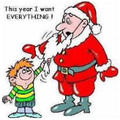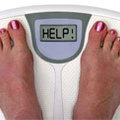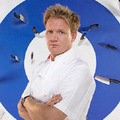 Amerikaiak és britek. Bár egy nyelvet beszélnek, néha mégis olyan, mintha két külön bolygón élnének. Az olyan egyszerű dolgokra más-más szavakat használnak, mint a taxi vagy a járda, nem csoda hát, hogy néha még egy amerikai is eltévedve érezheti magát Nagy-Britanniában. Szeretnéd megtanulni, hogy melyik országban használják a gasoline és melyikben a petrol szót? A következőkben elhozunk neked néhány érdekes példát, ráadásul, még mindenki kedvenc dokija, Dr House is visszatér egy kellemes beszélgetés erejéig.
Amerikaiak és britek. Bár egy nyelvet beszélnek, néha mégis olyan, mintha két külön bolygón élnének. Az olyan egyszerű dolgokra más-más szavakat használnak, mint a taxi vagy a járda, nem csoda hát, hogy néha még egy amerikai is eltévedve érezheti magát Nagy-Britanniában. Szeretnéd megtanulni, hogy melyik országban használják a gasoline és melyikben a petrol szót? A következőkben elhozunk neked néhány érdekes példát, ráadásul, még mindenki kedvenc dokija, Dr House is visszatér egy kellemes beszélgetés erejéig.
In British English ‘a note’ is not...
a. a mark in an exam.
b. a mark on a music score.
c. a piece of paper with some words on it.
d. writing something down so you remember it.
Not knowing the right expressions, meanings can sometimes be very confusing and embarrassing, especially when you’re in an English speaking country. However, the few differences that exist between British and American English tend rather to enrich communication than slow it down. That’s why we’ve collected a bunch of expressions for you, which differ in these two dialects.
Habár ugyanazon nyelvről van szó, mégis vannak kifejezésbeli és ételembeli különbségek az amerikai és a brit angol között. Mi most összegyűjtöttünk nektek ezekből egy párat, mert valóban ciki helyzetek alakulhatnak ki ha beszélgetés során félreértelmezzük a mondanivalót.
Let us entertain you. Have fun while you’re learning. And, of course NOTA BENE.
 Firstly here are two jokes to illustrate George Bernard Shaw’s thinking:
Firstly here are two jokes to illustrate George Bernard Shaw’s thinking:
We (the British and Americans) are two countries separated by a common language.
Englishman - "I'll never forget my feelings the first time I had breakfast in America, when the waitress leaned over my shoulder, and whispered in my ear: 'Are you through with the cereal?' „It was some time before I discovered that she meant: 'Have you finished your porridge?' "
American - "Well, shortly after I landed in England a waiter came up to me at luncheon and said: 'How did you find your chop, sir?' I replied: 'Oh, I looked behind the potato and there it was,' before I understood that he was asking me how I liked it."
Now let’s see some basic expressions. Look at the video carefully.
Now it should be very easy to fill in the gaps.
 It was getting near lunchtime and I needed some (1) ___________, so I left the (2) ___________ and drove towards the nearest town. There was a (3) ___________ station just outside the town and I decided to stop and have a look round. I put the car in a (4) ___________ ___________ and took a (5) ___________ to the centre.
It was getting near lunchtime and I needed some (1) ___________, so I left the (2) ___________ and drove towards the nearest town. There was a (3) ___________ station just outside the town and I decided to stop and have a look round. I put the car in a (4) ___________ ___________ and took a (5) ___________ to the centre.
It was midday and very hot, so I stopped at a little (6) ___________ with tables on the (7) ___________. I started talking to a (8) ___________ driver, who gave me a history of the town, and afterwards he took me on a guided tour. It made a nice break.
 It was getting near lunchtime and I needed some (1) ___________, so I left the (2) ___________ and drove towards the nearest town. There was a (3) ___________ station just outside the town and I decided to stop and have a look round. I put the car in a (4) ___________ ___________ and took a (5) ___________ to the centre.
It was getting near lunchtime and I needed some (1) ___________, so I left the (2) ___________ and drove towards the nearest town. There was a (3) ___________ station just outside the town and I decided to stop and have a look round. I put the car in a (4) ___________ ___________ and took a (5) ___________ to the centre.
It was midday and very hot, so I stopped at a little (6) ___________ with tables on the (7) ___________. I started talking to a (8) ___________ driver, who gave me a history of the town, and afterwards he took me on a guided tour. It made a nice break.
Clues
- 1) The fuel you put in a car to make it go.
- 2) A main road.
- 3) The fuel you put in a car to make it go.
- 4) A place to leave a car.
- 5) A car you can travel in if you pay the driver.
- 6) A place to buy and eat food. (Not a restaurant)
- 7) The place for walking by the side of the road.
- 8) A big vehicle used for transporting things.
Answer key:
| British | American |
|---|---|
| petrol | gas, gasoline |
| motorway | freeway, highway |
| petrol | gas, filling |
| car park | parking lot |
| taxi | cab |
| café | diner |
| pavement | sidewalk |
| lorry driver | truck driver |
We're going to end with this one.
Hugh Laurie, better known to us as Dr. House from the hit TV show, has a little friendly quiz with Ellen DeGeneres on her show to see who knows more of one another’s culture’s slang phrases.
Ellen: I'm going to give you some slangs, my American slang. We're gonna take turns and we’ll see how much you know and how much I know. OK?
Laurie: OK.
Ellen: The first one I’m gonna give you is FLOSSING. You know what flossing means.
Laurie: Actually flossing?
Ellen: No, it's slang.
Laurie: It's slang.
Ellen: I mean, you do know what actually flossing means?
Laurie: I know the Americans’ opinion of British dental practice. …That would be something close fitting? No. I know. … I don't know.
Ellen: That was to really show you how wrong you were.
Laurie: That's kind of rather aggressive.
Ellen: Yes, that was aggressive. I'm sorry. Because I could have just said no. In America we really like to rub it in. It's showing off it’s flossing.
Laurie: Really?
Ellen: Showing off is flossing.
Laurie: OK. … All right.
Ellen: Yes.
Laurie: What sound does it make when you are right?
Ellen: Ting. That's probably a different sound in England. …
Laurie: CHIN WAG. Chin wag….
Ellen: Chin wag? That would be a … blundering idiot. A chin wag. You chin wag. … No?
Laurie: No. It's actually a verb. It means to chat. It literally means to wag a chin.
Ellen: Chin wag?
Laurie: Chin. Did I mispronounce it?
Ellen: I never would have got it wrong. I couldn't understand the thick British accent.
Laurie: Could we look at that in slow motion?
Ellen: Chin wag. Of course. All right.
Laurie: So we are tied?
Ellen: Yes, tied at nothing. … BA-DONKA-DONK.
Laurie: It means to pass someone on a motorcycle then see a police car and break suddenly.
Ellen: No. It's an extremely curvaceous female behind.
Laurie: Right.
Ellen: Ba-donka-donk.
Laurie: We definitely don't have those in England. Is it ba-donka-donk? It’s a fantastic word.
Ellen: Ba-donka-donk. Isn’t it great? Use it from now on. I enjoy your ba-donka-donk honey.
Laurie: That's fantastic. CHUFFED TO BITS.
Ellen: Chuffed to bits.
Laurie: Chuffed to bits.
Ellen: Like chin?... Just exhausted.
Laurie: No. It's to be really pleased. To be thrilled by something. I'm chuffed to bits. I'm delighted. I’m chuffed to bits by your ba-donka-donk for example.
Ellen: We're going to end with this one, because everyone has learnt this watching the show. I've helped them. SHAWTY.
Laure: Shawty?
Ellen: Shawty. (…)
Laurie: Is this all one word? …
Ellen: Shawty is a young kid or a woman.
Laurie: Really?
Ellen: Yeap
| flossing | showing off | felvágni, hencegni |
| chin wag | chatting | fecsegés, traccsolás |
| ba-donka-donk | curvaceous female | csábos idomú |
| chuffed to bits | to be thrilled by something | elragadtatva, elbűvölve |
| shawty | a young kid or woman | csínos fiatal lány vagy hölgy |
| yeap | yes | :) |





